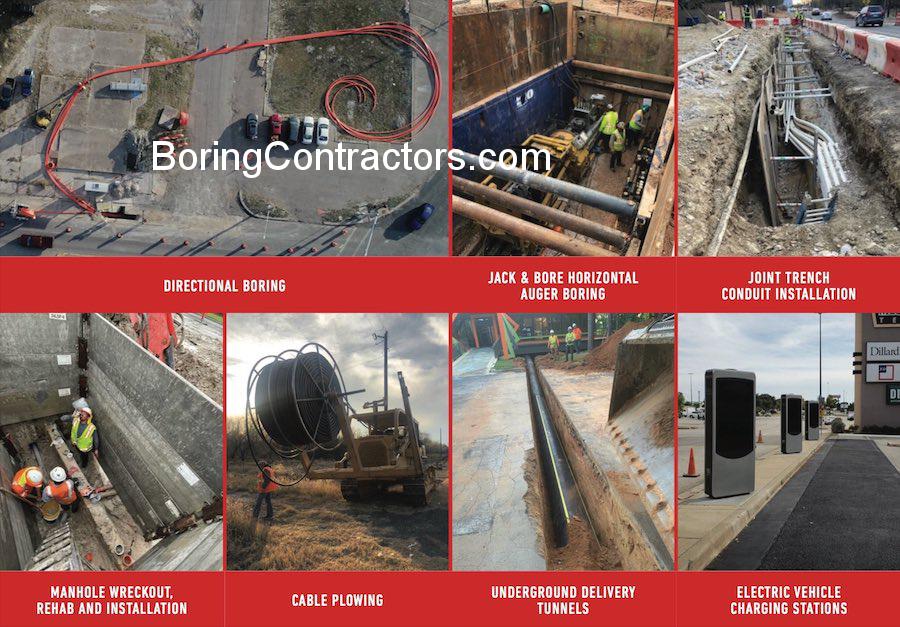Conduit Construction
Conduit Construction: Defining Essential Infrastructure for Electrical, Telecom, and Solar Industries
Definition: Conduit construction refers to the installation of protective tubes or channels, commonly made of PVC, HDPE, or metal, to house electrical wires, telecommunication cables, or solar power cables. These conduits serve as pathways to safely and efficiently transport various utilities, protecting them from external elements and minimizing the risk of damage or interference.
Who Conduit Construction is Performed For and How: Conduit construction is essential for a range of stakeholders across different industries:
- Electrical Industry: Conductors, cables, and wiring systems necessitate conduit construction to ensure safe and reliable transmission of electricity. Construction typically involves trenching, laying conduit, and backfilling with appropriate materials.
- Telecommunication Industry (FTTB, FTTCS, FTTH, FTTT): In telecommunications, conduit construction facilitates the deployment of fiber optics and other communication cables. Methods vary depending on the specific network architecture but often involve directional boring, trenching, or aerial installation.
- Solar Industry: Solar power systems rely on conduit construction to protect and manage the wiring connecting solar panels, inverters, and electrical components. Installation may involve trenching, conduit mounting, and connections to the solar array.
Where and When Conduit Construction is Required: Conduit construction is essential in various settings and scenarios:
- Urban Environments: Conduit construction is prevalent in urban areas where underground utilities are common. It helps manage the complex network of electrical, telecommunication, and solar infrastructure while minimizing disruption to densely populated areas.
- Industrial Facilities: Manufacturing plants, warehouses, and industrial complexes often require conduit construction to power machinery, facilitate communication, and support solar energy systems.
- Residential Developments: Conduit construction is crucial in residential areas for distributing electricity, providing internet connectivity, and integrating solar power solutions into homes.
Top Three Use Cases for Conduit Construction:
Electrical Industry:
- Commercial Buildings: Conduit construction in commercial structures ensures safe and efficient distribution of power to support lighting, HVAC systems, and other electrical loads.
- Infrastructure Projects: Infrastructure developments such as highways, bridges, and tunnels rely on conduit construction to provide electricity for lighting, traffic signals, and surveillance systems.
- Renewable Energy Integration: Conduit construction plays a vital role in renewable energy projects, such as wind farms and hydropower installations, by facilitating the transmission of clean electricity to the grid.
Telecommunication Industry:
- Fiber to the Home (FTTH): Conduit construction enables the deployment of high-speed fiber optic networks directly to residential properties, offering ultra-fast internet connectivity.
- Cellular Networks: Conduit construction supports the expansion and maintenance of cellular infrastructure, including the installation of small cell antennas for improved coverage and capacity.
- Smart City Initiatives: Conduit construction is essential for smart city projects, enabling the deployment of sensors, cameras, and IoT devices to enhance public services and urban management.
Solar Industry:
- Utility-Scale Solar Farms: Conduit construction is critical in utility-scale solar installations, ensuring efficient transmission of electricity generated by large arrays of solar panels to the grid.
- Commercial Rooftop Systems: Conduit construction facilitates the integration of solar energy systems on commercial rooftops, enabling businesses to reduce energy costs and carbon emissions.
- Off-Grid Applications: Conduit construction is essential for off-grid solar installations, such as remote cabins and telecommunications towers, providing reliable power in areas without access to traditional utility infrastructure.
Conduit construction serves as the backbone of modern infrastructure, enabling the seamless transmission of electricity, data, and renewable energy while ensuring reliability, safety, and sustainability across diverse industries and applications.


